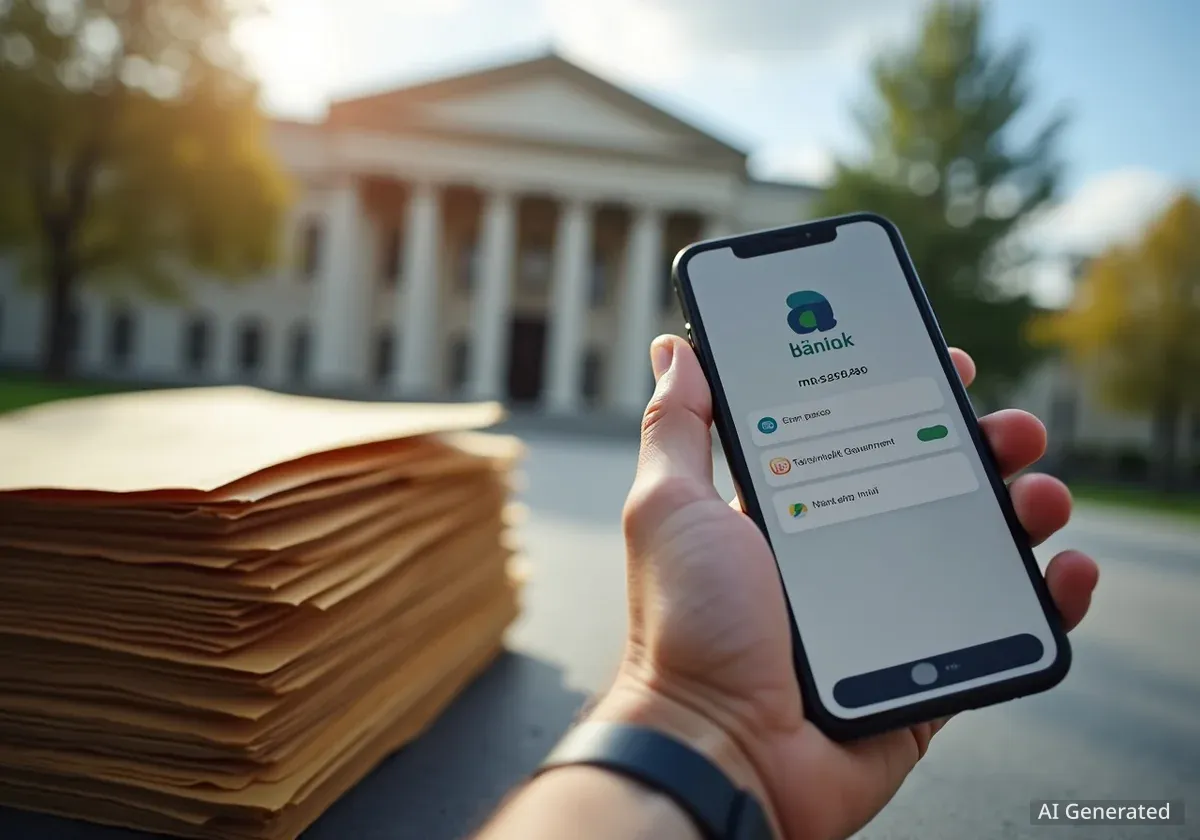The United States federal government is officially ending the use of paper checks for most benefit payments, including those from the Social Security Administration and the Department of Veterans Affairs. This significant shift to all-electronic payments is the result of a recent executive order aimed at modernizing federal transactions and enhancing security.
Key Takeaways
- The federal government will stop issuing paper checks for most payments, including Social Security and VA benefits.
- The change mandates a switch to electronic payment methods such as direct deposit, prepaid cards, or digital wallets.
- This policy also applies to federal tax refunds issued by the IRS and payments made to the government.
- The move is intended to reduce fraud, loss, and theft, as electronic funds are significantly more secure than paper checks.
- Limited exceptions will be available for individuals who do not have access to banking services.
The Shift to Digital Payments
An executive order signed earlier this year by President Trump initiated a comprehensive modernization of how the government handles payments. The order directs federal agencies to phase out paper checks and money orders in favor of more secure and efficient digital alternatives.
The final day for the old system is Tuesday, after which most federal disbursements will be processed electronically. This includes a wide range of transactions, from benefit payments and tax refunds to payments made to government vendors.
Increased Security
According to the executive order, paper-based payments are 16 times more likely to be lost, stolen, returned, or fraudulently altered compared to electronically disbursed funds. This transition is a key step in safeguarding taxpayer money and ensuring recipients receive their funds reliably.
The acceptable digital payment methods outlined in the directive include direct deposit, prepaid debit cards, digital wallets, and other modern electronic payment systems. The goal is to create a more streamlined and secure financial process for both the government and the public.
How This Affects Benefit Recipients
This change directly impacts millions of Americans who receive regular payments from federal agencies. The Social Security Administration (SSA) and the Department of Veterans Affairs (VA) are two of the largest agencies affected.
Widespread Adoption of Direct Deposit
The transition to electronic payments builds on a long-standing trend. According to data from the Social Security Administration, more than 99% of beneficiaries already receive their payments electronically, primarily through direct deposit. This new policy will affect the remaining recipients who still get paper checks.
What You Need to Do
If you currently receive paper checks for Social Security or VA benefits, you must take action to switch to an electronic method. There are several ways to update your payment information:
- Online Portals: You can log into your account on the Social Security Administration website or the VA's online portal to update your direct deposit details.
- Contact a Representative: You can call the respective agency to provide your new payment information over the phone.
- Visit Your Bank: Your financial institution can help you set up direct deposit by providing your account information directly to the agency on your behalf.
It is crucial for affected individuals to make these changes promptly to avoid any disruption in receiving their benefits.
Exceptions to the Electronic Mandate
The government recognizes that not everyone has equal access to modern banking services. The executive order includes provisions for specific exceptions to the all-electronic rule.
Individuals may still be able to receive paper payments if they can demonstrate that they do not have access to banking services or online payment systems. This ensures that vulnerable populations are not left behind by the technological shift.
Other exceptions outlined in the order include "emergency payments where electronic disbursement would cause undue hardship" and other specific situations as determined by the Secretary of the Treasury.
These waivers are designed to provide flexibility and prevent the new policy from negatively impacting those who are unable to comply with the digital mandate for legitimate reasons.
Impact on Tax Refunds and Payments
The modernization effort is not limited to benefit disbursements. It also extends to transactions with the Internal Revenue Service (IRS). The order requires that "the payment of Federal receipts" also be made electronically.
This means that in the future, taxpayers may be required to pay federal taxes electronically rather than by mailing a check. The IRS has already announced it will begin phasing out paper tax refund checks for individual taxpayers starting this Tuesday to comply with the new rule.
However, the agency has advised taxpayers to continue using existing forms and procedures for tax payments until it provides further guidance. The transition for incoming payments to the government is expected to be more gradual.





